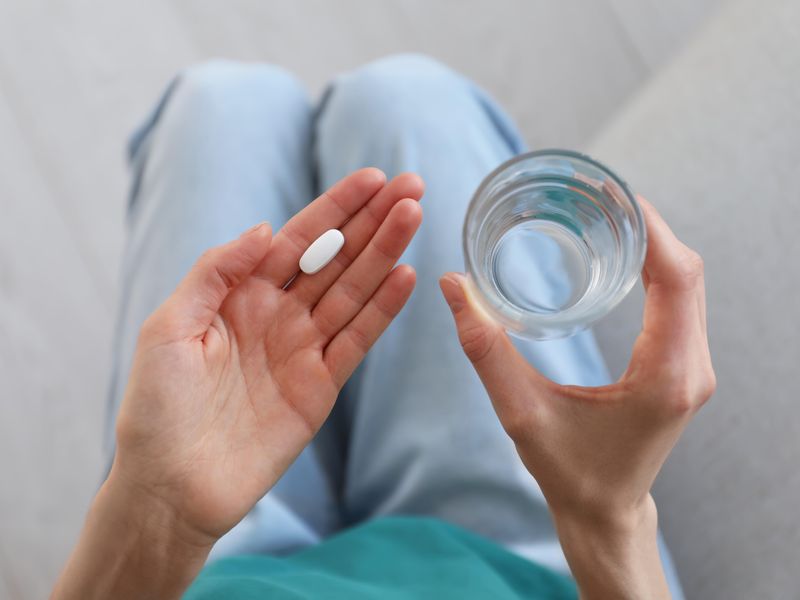Menopause Medications

When it comes to menopause medications, there are many options available to you. These include estrogen replacement therapy, which replaces reproductive hormones in a woman’s body when her ovaries no longer produce adequate amounts. HRT contains synthetic hormones such as progesterone, testosterone, and estradiol. It has been shown to help reduce menopause symptoms and relieve vaginal dryness. In addition to these benefits, HRT can also reduce the risk of osteoporosis.
Although the CDC guidelines recommend that estrogen-only medicines not be used during the first few years of menopause, many women have already experienced their first symptoms. Fortunately, there are some non-hormone menopause medications available that don’t involve using hormones. These medications include paroxetine and Brisdelle, which are FDA-approved for menopause use. However, you should avoid using hormone-only medicines, which may pose serious risks.
Premature menopause is a condition in which the body stops producing estrogen. It is usually diagnosed after a woman’s last menstrual period and is also known as postmenopause. This stage is often difficult to deal with and can be accompanied by many other symptoms. Most menopause medications work by boosting the hormone estrogen. While it is important to understand that the effects of estrogen alone will vary, hormones can also boost libido and mood.
Prescription menopause medications can help with the symptoms of menopause. They can help with hot flashes, reduce anxiety, and enhance sex life. They may also decrease the risk of common diseases such as heart disease, stroke, and osteoporosis. Moreover, treatment during the early stages of the menopause stage can delay the development of osteoporosis. They may not be safe for women with cancer, so it is important to seek medical advice before taking any medication.
While menopause medication can make the symptoms go away, it is important to talk with your doctor about any other medication options you may be taking. Taking hormones can help manage symptoms such as hot flashes, vaginal dryness, and low mood. Hypogestin is a popular medication for women experiencing menopause. The pill is a synthetic form of the hormone estrogen that mimics the hormones in the body and is safer than the natural hormones.
Taking menopause medication is a common way to reduce the symptoms associated with the menopause. While many women prefer to relieve menopause symptoms naturally, medication can be helpful for some women. For example, estrogen, or estrogen alone, is an estrogen-only treatment for most symptoms. In addition to estrogen, hormone replacement therapy can be used in women who have a hysterectomy or are otherwise incapable of producing estrogen. Other medications, such as a combination of two or more substances, are called bioidentical hormone therapy.
If you are a woman experiencing menopausal symptoms, your doctor may recommend hormone therapy as a treatment option. These foods contain estrogen, which helps relieve most of the symptoms of menopause. Some of them even added prostatins. Although they are not suitable for all women, these medicines are useful for some women. In addition, they can improve the quality of their lives. These medications can also help you lead a healthier lifestyle.
Depending on your doctor’s recommendation, you can choose from a wide range of menopause medications. The most common types include hormones, which regulate hormones in a woman’s body. These medications are very effective for menopause but have some side effects. If you are taking hormones, you should talk to your doctor about it and get recommendations on the GP’s author’s website Hugo Sanchez. Some of these medicines can cause a number of complications.
Antidepressants are not approved as menopausal medications, but they may be an option for some women. Among them, clonidine is an FDA-approved drug. The CDC also recommends avoiding certain types of menopause medications. Despite the benefits, hormonal drugs are not without risks. They can lead to serious side effects, including an increased risk of cancer. For example, estrogen-only drugs can increase the risk of developing uterine and endometrial cancer.
Fortunately, the benefits of menopause medications are well known. They can help relieve symptoms and reduce the risk of serious illnesses. Other menopause medications can help relieve hot flashes, night sweats, and vaginal dryness. Some of the most popular prescription medications for menopause include creams, gels, and patches. Some women also experience vaginal dryness and insomnia. They may also benefit from estrogen-only foods.
